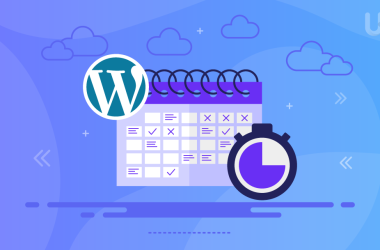Blogging has emerged as a powerful platform not only for self-expression but also as a viable means of generating income. The key lies not just in sharing your thoughts with the world but in strategically navigating the landscape to monetize your expertise and build a sustainable online business.
From selecting the right niche and optimizing your blog for search engines to implementing diverse monetization strategies and building a loyal audience — this guide is crafted to help you with the knowledge and blogging tools needed to thrive in the competitive yet rewarding field of blogging.
Choose a Profitable Niche
Starting a successful blogging journey begins with a critical decision: choosing the right niche. Your niche sets the tone for your entire blogging venture, influencing your content, audience, and your potential for financial success.
Selecting a niche is like choosing a business model. It’s the foundation upon which your entire blogging strategy will be built. The importance of niche selection cannot be overstated. A well-chosen niche allows you to establish yourself as an authority in a specific area, making attracting and retaining a dedicated audience easier. Just as crucial as domain selection, the niche you choose shapes the identity and focus of your blog, influencing its potential for long-term success and resonance with your target audience.
Researching and Identifying Profitable Niches
- Use Google Trends: Start your keyword research from Google Trends. This allows you to identify the popularity of different topics over time. Look for consistent upward trends and explore related queries to gauge the potential audience size.
- Keyword Research: Dive deeper with keyword research tools like SEMrush or Ahrefs. Identify keywords related to potential niches and analyze their search volume and competition. This data provides insights into the demand for specific topics and helps you identify niches with growth potential.
- Competitor Analysis: Analyze successful blogs in your areas of interest. Understand the type of content they produce, the engagement they receive, and the products or services they offer. Moreover, identify gaps in their content that you can fill with your unique perspective.
Build a High-Quality Blog
Your blog’s success is intricately tied to its quality, both in appearance and content. Building a high-quality blog involves a holistic approach that combines a professional aesthetic, search engine optimization (SEO), and the creation of valuable, engaging content.
Equally pivotal in this equation is the choice of hosting services. The type of hosting you opt for, such as shared web hosting or dedicated hosting, significantly influences the performance and accessibility of your blog. Ensure that your hosting aligns seamlessly with your commitment to quality, as it forms the backbone of your blog’s user experience and overall success.
Importance of a Professional-Looking Website
Your blog is your digital storefront, and first impressions matter. Emphasizing the importance of a professional-looking website is paramount. Invest in a clean, visually appealing design that reflects your brand identity. A well-designed website not only attracts visitors but also instills trust and credibility. Ensure easy navigation, a responsive layout, and attention to detail, from font choices to color schemes. A professional appearance not only enhances user experience but also sets the stage for establishing your blog as a reputable source in your chosen niche.
Optimize Your Blog for Search Engines (SEO)
An integral aspect of building a high-quality blog is optimizing it for search engines. SEO is the key to improving your blog’s visibility and driving organic traffic. Conduct thorough keyword research to understand what your target audience is searching for, and strategically incorporate these keywords into your content. Pay attention to on-page SEO elements, such as meta descriptions, alt tags, and header tags. Regularly update and add fresh content to keep your blog relevant in search engine rankings. By aligning your content with what your audience is actively seeking, you enhance the discoverability and reach of your blog.
Create Valuable and Engaging Content for Your Audience
The heart of a high-quality blog lies in the content you create. Understand your audience’s pain points, aspirations, and interests. Tailor your content to provide solutions, insights, and entertainment that resonate with your readers. Consistency is key; establish a content schedule that aligns with your audience’s expectations. Moreover, encourage engagement through comments and social media, creating a sense of community around your blog. Valuable and engaging content not only attracts new visitors but also retains existing ones, fostering a loyal readership base.
Monetization Strategies

The blog’s potential for financial success lies in effective monetization strategies. Diversifying your income streams is key to a more sustainable and profitable journey. One of the most effective ways to achieve this is by learning how to generate passive income. By incorporating methods like affiliate marketing or selling digital products, you can create a steady stream of revenue that continues to grow with minimal effort. Here are key strategies to turn your blog into a revenue-generating asset:
Advertising and Sponsored Content
One of the most accessible ways to start monetizing your blog is through advertising. Google AdSense allows you to display contextual ads on your blog, earning revenue when visitors click on or view these ads. Explore other ad networks that align with your niche for additional opportunities. However, be mindful of not overwhelming your audience with excessive ads, as this can negatively impact user experience.
Another option is collaboration. Collaborating with brands for sponsored content is a powerful avenue for monetization. As your blog gains traction, brands may approach you for partnerships. Alternatively, you can actively seek out collaborations that align with your niche. Moreover, ensure that sponsored content seamlessly integrates with your usual content, providing value to your audience while meeting the brand’s objectives.
Affiliate Marketing
Affiliate marketing involves promoting products or services and earning a commission for each sale or action generated through your unique affiliate link. Select affiliates that align with your niche and resonate with your audience. Authenticity is key; only promote products or services you genuinely believe in to maintain trust with your readers.
Integrate affiliate links organically within your content. Avoid overtly promotional language and instead focus on providing valuable insights or solving problems for your audience. Consider creating dedicated, well-researched product reviews or tutorials that seamlessly incorporate affiliate links. Transparency about your use of affiliate links fosters trust among your audience.
Selling Products or Services
Leverage your expertise to create digital products that cater to your audience’s needs. This could include ebooks, online courses, templates, or any other digital asset. Develop products that provide tangible value and solve specific problems for your readers. Platforms like Gumroad, Teachable, or your blog directly can serve as avenues for selling these digital products.
If you have the expertise and skills, offering consulting or coaching services can be a great way to share your knowledge. Additionally, consider contributing to online learning platforms where resources like Cisco CCNA 200-301 Dumps are shared, further establishing you as a valuable resource in the field. If your blog establishes you as an authority in your niche, your readers may seek personalized guidance. Create service packages that align with your skills and cater to your audience’s needs. Use your blog as a platform to showcase your expertise and availability for these services.
Ready to Monetize Your Blog?
Explore the key steps to success and supercharge your earnings. Ready to take the next step? Upgrade your blogging experience with top-notch WordPress hosting from UltaHost. Elevate your blog, amplify your reach, and embark on a journey to blogging prosperity!
Diversify Your Income Streams
Relying on a single source of income leaves your blog vulnerable to fluctuations in the market or unexpected changes. Diversification is key to building a resilient financial foundation for your blog. Moreover, by tapping into multiple revenue streams, you not only maximize your earning potential but also create a safety net, ensuring a steady income even if one avenue experiences a downturn.
Explore Additional Monetization Avenues
Keep an eye on emerging trends and opportunities in the blogging landscape. Explore new monetization avenues that align with your niche and audience. This could involve participating in affiliate programs, joining exclusive membership platforms, or even exploring sponsored memberships. Moreover, staying open to innovation and diversification ensures your blog remains adaptive and responsive to evolving market dynamics.
Stay Adaptable to Changes in the Blogging
The blogging landscape is dynamic, with trends and algorithms evolving regularly. Stay informed about industry changes and be ready to adapt your monetization strategies accordingly. Whether it’s adjusting your content strategy, exploring new platforms, or embracing emerging technologies, staying adaptable ensures your blog remains a relevant and profitable entity in the ever-changing digital landscape.
Optimize for Conversions
A seamless user experience is paramount for converting visitors into customers. Evaluate and improve your website design to ensure it is user-friendly, visually appealing, and responsive across devices. A well-designed website not only enhances credibility but also encourages users to explore your content and offerings.
Implement Effective Calls-to-Action (CTAs)
Strategic placement of compelling calls-to-action (CTAs) is essential for guiding your audience towards desired actions. Whether it’s subscribing to a newsletter, making a purchase, or signing up for a service, CTAs should be clear, persuasive, and strategically placed throughout your blog. Tailor CTAs to align with your monetization goals and audience preferences.
Analyze Data and Adjust Strategies for Better Conversion Rates
Leverage analytics tools to gather data on user behavior, conversion rates, and the performance of different CTAs. Analyze this data regularly to identify patterns and areas for improvement. A data-driven approach allows you to refine your strategies, optimize conversion pathways, and ultimately enhance the effectiveness of your blog’s monetization efforts.
Track and Analyze Performance
Analytics tools provide invaluable insights into your blog’s performance. Monitor website traffic, user demographics, and popular content to understand your audience better. Moreover, platforms like Google Analytics offer a wealth of data to help you make informed decisions about your content and monetization strategies.
Monitor the Performance of Different Income Streams
Track and evaluate the performance of each income stream individually. Identify which strategies are yielding the best results and which may need adjustments. By understanding the strengths and weaknesses of each monetization avenue, you can allocate resources effectively and prioritize efforts that contribute most to your blog’s profitability.
Make Data-Driven Decisions to Optimize Your Blog’s Profitability
Use the insights gathered from analytics to make informed, data-driven decisions. Whether it’s adjusting content strategies, refining marketing approaches, or fine-tuning your monetization mix, data-driven decisions ensure that your blog is continuously optimized for maximum profitability and growth.
Conclusion
As you start implementing these strategies, remember that blogging is a journey of continuous learning and adaptation. The potential for long-term financial success through blogging is not a mere aspiration—it’s a reality within your reach. By combining your passion with strategic planning, staying adaptable, and consistently delivering value, your blog has the potential to evolve from a creative outlet into a sustainable and profitable business.
As we reach the conclusion, remember that the selection of your domain in blogging is the digital address that defines your online presence. Therefore, register a domain for your blog’s identity with UltaHost. Your domain is not just an address; it’s a reflection of your brand and a key element in your blog’s success story.
FAQ
How long does it typically take to start making money from a blog?
The timeline for monetizing a blog varies based on several factors, including niche, content quality, audience engagement, and the chosen monetization strategies. Moreover, some bloggers may see income within a few months, while others may take a year or more. Consistency, patience, and strategic planning are crucial.
Are there any specific niches that are more profitable for blogging?
Profitability depends on various factors, including market demand and competition. Popular niches include finance, health and wellness, technology, and personal development. However, success is also about finding a balance between personal passion and market demand.
How do I know if my blog is ready for sponsored partnerships with brands?
Brands typically look for engagement, authenticity, and a target audience that aligns with their products or services. If your blog has a consistent flow of traffic, a loyal readership, and a clear brand identity, you may be ready. It’s crucial to ensure that sponsored content aligns with your niche and provides value to your audience.
Is there a guarantee of long-term financial success through blogging?
While there are no guarantees, the potential for long-term financial success through blogging is significant. Success depends on factors like dedication, adaptability, and consistently delivering value. Moreover, many bloggers have turned their passion into a full-time career, but it requires persistence and strategic planning.










